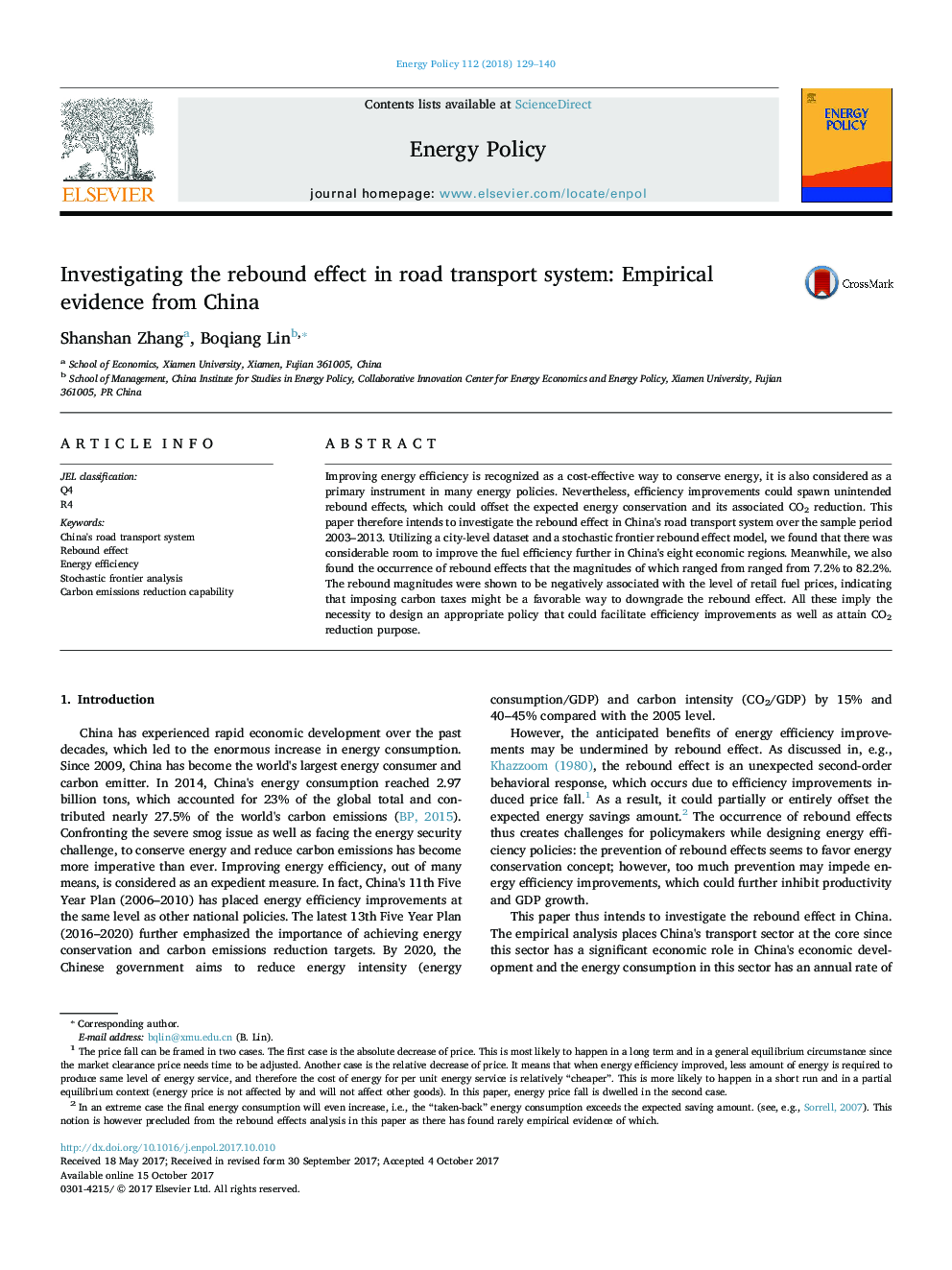| Article ID | Journal | Published Year | Pages | File Type |
|---|---|---|---|---|
| 5105457 | Energy Policy | 2018 | 12 Pages |
Abstract
Improving energy efficiency is recognized as a cost-effective way to conserve energy, it is also considered as a primary instrument in many energy policies. Nevertheless, efficiency improvements could spawn unintended rebound effects, which could offset the expected energy conservation and its associated CO2 reduction. This paper therefore intends to investigate the rebound effect in China's road transport system over the sample period 2003-2013. Utilizing a city-level dataset and a stochastic frontier rebound effect model, we found that there was considerable room to improve the fuel efficiency further in China's eight economic regions. Meanwhile, we also found the occurrence of rebound effects that the magnitudes of which ranged from ranged from 7.2% to 82.2%. The rebound magnitudes were shown to be negatively associated with the level of retail fuel prices, indicating that imposing carbon taxes might be a favorable way to downgrade the rebound effect. All these imply the necessity to design an appropriate policy that could facilitate efficiency improvements as well as attain CO2 reduction purpose.
Related Topics
Physical Sciences and Engineering
Energy
Energy Engineering and Power Technology
Authors
Shanshan Zhang, Boqiang Lin,
